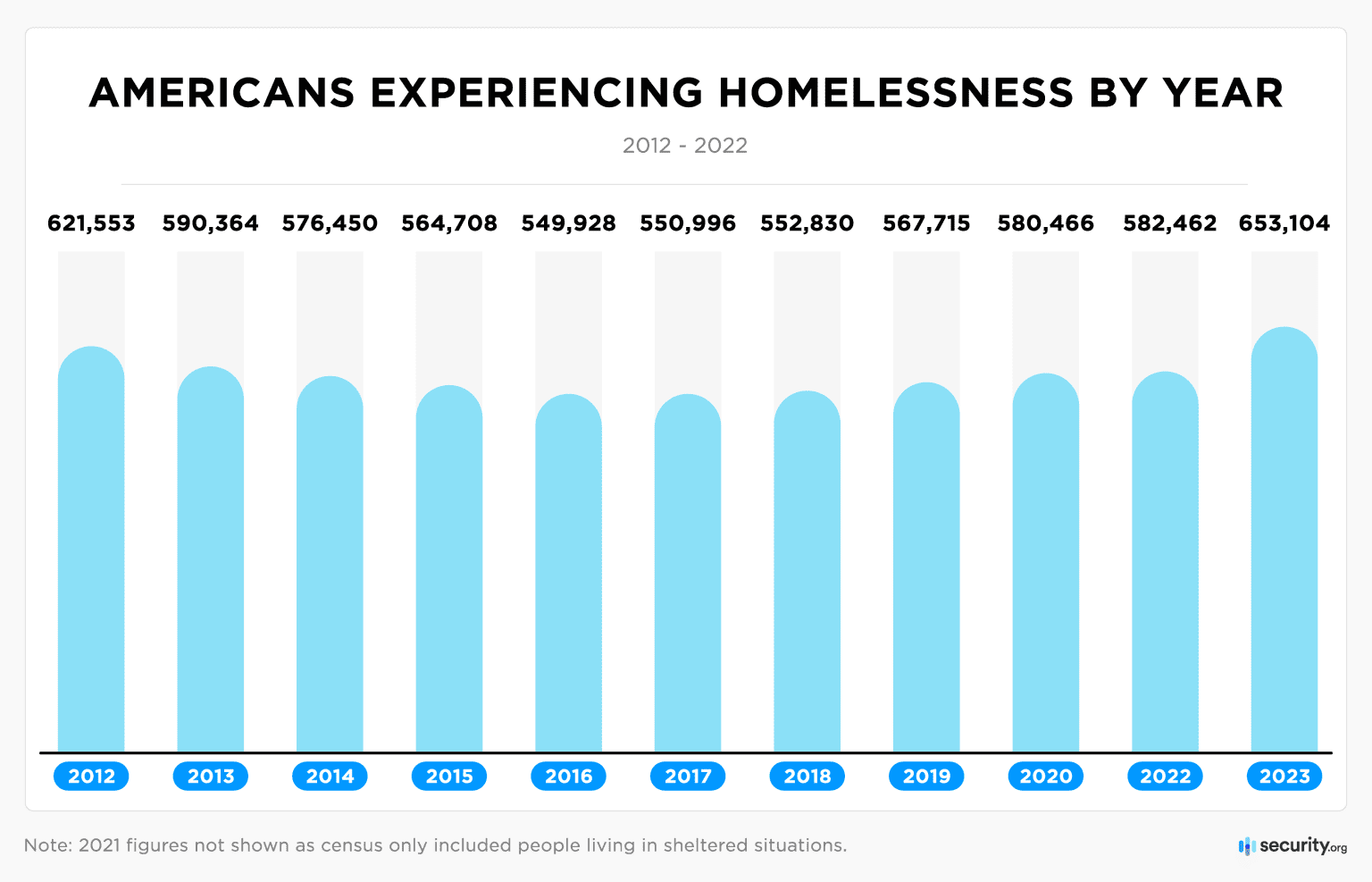Too bad prices are up 20% on average since 2020, and aren’t coming back down. That the 2023-2024 inflation rate is only 3% doesn’t matter when wages never caught up with the giant price jumps from the pandemic.
People are still hurting.
https://www.bankrate.com/banking/federal-reserve/latest-inflation-statistics/
Prices have risen 20.8% since the pandemic-induced recession began in February 2020, with just 6% of the nearly 400 items the Bureau of Labor Statistics tracks cheaper today.
That’s well above the historic average for a four-year period. For comparison, inflation rose 18.9 percent in the 2010s, 28.4 percent in the 2000s and 32.4 percent in the 1990s.
wages never caught up with the giant price jumps from the pandemic
I’m gonna have to go ahead and sorta disagree with you there
I was gonna link you to wage numbers or find something in my post, but it’s actually right there in your link, in the quote from Mark Hamrick. “ Will consumers suddenly feel relieved from the burden of elevated prices? No. But they are supported by a still robust job market that supports employment and wage gains rising above the recent pace of inflation.”
They’re catching up with the recent pace, which is back down (i.e. 3.3%), not the post-2020 pace. It still hasn’t caught up.
As you quoted:
Will consumers suddenly feel relieved from the burden of elevated prices? No.
Hm - I interpreted “recent” as one way, but yeah, that’s fair, you could interpret “recent” as him meaning the last year or something. Here’s a summary, then, of how wages at the bottom end have kept pace with inflation over the last few years. “Real wages of low-wage workers grew 12.1% between 2019 and 2023.” Cumulative inflation over that time span has been about 18% (which is massive), but low-end wages in current dollars also grew by 35% cumulatively in that time, well outpacing inflation.
What numbers are you looking at that say low income wages haven’t kept pace with inflation? Like what kind of cumulative current-dollar wages, and what cumulative inflation, are you claiming? If my stuff is propaganda numbers, then what are the real numbers?
Inflation-adjusted wages have ticked very slightly down at the median (like a few percent), gone down a bit at the top end, and gone up significantly both at the bottom end and in the average. It’s a complex topic and you can find a variety of numbers both on the income and inflation sides, but they generally all paint that same story (which is, itself, complex enough that you can paint a bunch of different narratives from it, by putting up the numbers for average vs. median vs. lowest-quartile or etc).
Not to be rude, but do you even read your own sources?
Wage rates remain insufficient for individuals and families working to make ends meet. Nowhere can a worker at the 10th percentile of the wage distribution earn enough to meet a basic family budget.
It’s literally at the top of your article, under “Key Findings”, probably because they knew that it’s easy to misunderstand statistical data, or to claim it says what you want it to.
So the percentiles you are talking about still cannot keep their heads above water, despite the growth of wages in many of their jobs, and the other percentiles haven’t seen that level of wage growth, or have even lost ground to inflation, but you’re over here going, “I’ve got great news for you, you’re actually not in a bad financial position, stop taking your actual lived experiences over my big numbers!”
See above
So, no actual answer then. Got it.
I mean, sure. 🙂 I was trying to consolidate comments into a single stream of conversation since it’s already sort of turning into a bickering sprawl, but if you’d like to reply to it here instead of there, then I’m fine with that too:
Yes, lower income people in this country are still fucked. If anything I was saying made it sound like I thought they were not, that was not the intent. My point was that Biden has been helping them get out of it, to a certain degree, in a way that’s actually very unusual for an American president (they generally don’t give a shit about the working class). And that happened even during a historic level of economic challenge to tackle his way out of. And therefore that attacking him by pretending that the opposite is happening is erroneous at best and openly dishonest at worst.
deleted by creator
That’s real wages (inflation adjusted dollars). I.e. Wages at the bottom end have outpaced inflation by 12.1%. That’s why I quoted that sentence in my message…
To get current dollars you would do 1.121 * 1.18 - 1 = 32% growth in current-dollar wages (where 1.121 comes from 12.1% cumulative constant-dollar wage gain, and 1.18 comes from 18% cumulative inflation). I saw 35% somewhere else instead of 32%; like I said there are small differences, but that overall broad picture is the same from all sources I’ve seen.
So, you’re not clear on the difference between current dollar wages and constant dollar wages, but you’re lecturing me on what is the real economic picture is that I’m not understanding? Okay, so tell me. What are you saying is happening? Have I understood you correctly that you claim current dollar wages have risen by only 12%?
And yes, lower income people in this country are still fucked. If anything I was saying made it sound like I thought they were not, that was not the intent. My point was that Biden has been helping them get out of it, to a certain degree, in a way that’s actually very unusual for an American president (they generally don’t give a shit about the working class). And that happened even during a historic level of economic challenge to tackle his way out of. And therefore that attacking him by pretending that the opposite is happening is erroneous at best and openly dishonest at worst.
Bruh, you are throwing around back of the napkin math, and you are not impressing anyone with it.
Your own sources say that the groups who saw the most wage gains are still unable to make a livable wage.
It is not a healthy economy or society.
You are obfuscating.
I am pointing out that, as far as I can tell, you made a fundamental error of confusing inflation-adjusted wages for non-inflation-adjusted wages, leading your entire point to be backwards from what your own source was claiming. And so I asked you what’s up with that, and if you want to explain, or if I have misunderstood anything.
You choosing not to explain (but instead abandon the details completely and insult the whole concept of doing math to demonstrate or understand something) pretty much provides the answer, to me. But sure! Keep going about how I’m just spouting propaganda that doesn’t match the factual reality. The more that you can take it into the realm of us just being hostile and condescending to each other, I think, the further away from “hey let’s look at the facts and what’s actually going on,” and the better for you (and that tactic is working to a certain extent, I think.)
Saying low income workers in America don’t make a living wage, and that it’s not a healthy economy or society, I’ll 100% agree with. Pretty sure I made that clear already, but if I did not, there it is again.
Yeah, a more accurate title would be:
Big Business Profits & Pricing Soar; Price Fixing, Abusive Practices Unchecked Under Biden
Thanks Obama
Yeah if only the working class were seeing any of that growth
Boy do I have some good news for you
The nation’s unemployment rate has sat below 4 percent for more than two years now, the longest such streak since the 1960s. With labor markets persistently tight, low-income workers have finally secured some leverage over their employers, and wage inequality has fallen as a result.
Nice! How have wages at these new jobs been stacking up with inflation?
Don’t be deceived. This person is misrepresenting statistics.
Here’s the link they provided me about their claims about the low-end wage growth:
https://www.epi.org/publication/swa-wages-2023/
This is where they’re getting their 35% claims from.
And here’s what it says under Key Findings:
Wage rates remain insufficient for individuals and families working to make ends meet. Nowhere can a worker at the 10th percentile of the wage distribution earn enough to meet a basic family budget.
Yeah that’s me, Mr. Deceptive, over here explaining what the cumulative wage growth is, and the cumulative inflation, so that people can compare the two and see which one is higher
I actually originally cited the source which simply said that inflation-adjusted wages had grown by 12%, incorporating both into a single number, but that led to a certain amount of confusion, so I separated it out into the two relevant numbers
You know, like a terribly deceptive person would do
(And yes, the poorest 10% of this country is still fucked and needs quite a lot of help. My point was not that they’re doing okay now, it was that they have seen substantial gains relative to where they were, which is a notable thing, and that we should keep doing the things that got them going in the right direction for once in God knows how long.)
So let me ask, if the actual people are “still fucked”, why post articles claiming that our economy is the “envy of the world”?
I feel like we’ve been over this at this point
- There are quite a lot of countries where the poorest 10% are fucked. The US isn’t unique in that respect
- A lot of countries are struggling to hold their heads above water at all, after the Covid apocalypse; the fact that by almost any metric you want to choose, the US is actually gaining right now puts it in an enviable position given what happened
- The fact that the average worker, and the poorest 10% worker, are both making gains of significant size when usually they are the first ones to get fucked even harder when times are tough, is notable, and “we haven’t fixed things for them yet or even close to it” doesn’t negate that
Pick any or all
Wait, are “times tough”, or are we in a “great” position, economically? I can’t keep up.
But in all seriousness, this all boils down to a simple truth:
Low and middle-class workers today are in far worse positions than our parents’ generation(s).
We can’t afford homes. We can’t afford childcare. We can’t afford healthcare. Many of us can’t even afford food consistently.
That is where we are at, bottom-line.
Arguing about percentage gains among certain groups belies the fact that this is a shitty economic system, that funnels money upwards.
Do we sometimes claw back a few steps? Sure. But praising the 2 steps forward, while ignoring the previous 10 steps back, just comes across as caping for it.
One particularly depressing graph is home ownership among Millennials. As of 2019, that number sits at 43.3%. But in the year 2000, that number was 20%. The oldest millennials were born in 1981, which means they were 19 years old in 2000.
So at minimum, HALF of the Millennials who own homes now, were rich kids who had their homes bought for them as highschool grads. And that was just the ones literally born in 1981-82. How many of the new millennial home owners are just rich kids who were younger millennials?
This economy is fucked.
I’m sure boiling frogs appreciate when you reduce the heat by a couple degrees, but it doesn’t mean they’re in a good position.
Exceeding it
It actually makes it a lot more remarkable - short summary is that wages at the bottom end have gone up by like 35% un adjusted, with some but not all of that gain being eaten up by inflation. Wages at the middle and the top have kept pace with inflation or fallen slightly relative to it.
Basically, wages have gone up hugely (especially at the bottom which I suspect is invisible to a lot of the Lemmy-reading and news-article-writing class since they’re in relatively okay tech savvy types of jobs), which was Biden’s doing, even in the face of huge inflation which wasn’t Biden’s doing. If it wasn’t for having to dig out from COVID we’d be in a historic economic boom right now.
(The Vox article I linked goes into some additional detail which I hadn’t been aware of about the inflation piece - TL;DR is that after Covid, Biden had to accept either inflation or unemployment, and he chose inflation where most of the neoliberal garbage that is our political class would have chosen unemployment.)
It’s one of those cruel ironic twists. Wages actually have increased, but inflation has far outpaced them.
It’s only barely begun to level back out. The real question is if the wages will stay high once inflation (and greedflation) calms the fuck down.
https://www.statista.com/statistics/1351276/wage-growth-vs-inflation-us/
Don’t be deceived. This person is misrepresenting statistics.
Here’s the link they provided me about their claims about the low-end wage growth:
https://www.epi.org/publication/swa-wages-2023/
This is where they’re getting their 35% claims from.
And here’s what it says under Key Findings:
Wage rates remain insufficient for individuals and families working to make ends meet. Nowhere can a worker at the 10th percentile of the wage distribution earn enough to meet a basic family budget.
Yeah that’s me, Mr. Dishonest, over here explaining what the cumulative wage growth is, and the cumulative inflation, so that people can compare the two and see which one is higher
I actually originally cited the source which simply said that inflation-adjusted wages had grown by 12%, incorporating both into a single number, but that led to a certain amount of confusion, so I separated it out into the two relevant numbers
You know, like a terribly dishonest person would do
(And yes, the poorest 10% of this country is still fucked and needs quite a lot of help. My point was not that they’re doing okay now, it was that they have seen substantial gains relative to where they were, which is a notable thing, and that we should keep doing the things that got them going in the right direction for once in God knows how long.)
inflation has far outpaced them
This actually isn’t fully true – inflation hasn’t outpaced wages at the bottom end, and the only place it’s “far” outpaced them is at the top. (The Vox article talks about more details about how and why)
- Cumulative inflation from 2019 to 2023 is about 18% (which is fuckin massive, mostly due to the 2022 spike)
But then:
- Wages at the bottom (10th percentile) in that time went up by about 35% in current dollars, well outpacing inflation
- Median wages basically held steady with inflation, I think they’re a couple percent behind it but basically the same as they were just with people unhappier when they look at their grocery bills
- Wages at the top (90th percentile) actually didn’t hold pace with that historic inflation; for those people their constant dollar wages have been falling, yes
We’re just waiting on the profits to trickle past the executives and shareholders to get to us. Any day now
Boy do I have some good news for you
The nation’s unemployment rate has sat below 4 percent for more than two years now, the longest such streak since the 1960s. With labor markets persistently tight, low-income workers have finally secured some leverage over their employers, and wage inequality has fallen as a result.
Any day now for me 😭
Now look at labor participation rate.
Let’s just say I’m glad I’m not it Japan right now. My friend is having a difficult time there, wages have been stagnant for years and nothing seems to be working with fixing the yen. She can’t just job hop to get better pay either, it isn’t there.
It’s not that the US economy is better than others, it is just trusted to be the default place for people to invest their excess money which has resulted in most of the US stock market being overvalued compared to the rest of the world.
“U.S. stocks’ outperformance on average over the past half-century or so has simply been due to increasing price multiples, not an improvement in business fundamentals. That is, U.S. companies did not generate more profit than international companies; their stocks just got more expensive. […] Cheap stocks have greater expected returns and expensive stocks have lower expected returns.”








